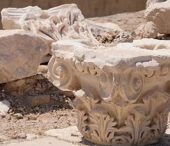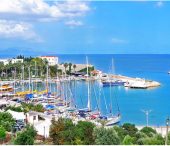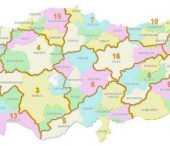Isparta is a city in western Turkey and the provincial capital of the Isparta Province. The city's population is 150,000 and elevation from sea level is 1035 m. Another name of the city is "City of Roses". In old Turkish, names did not start with SP, therefore an "I" is added in front of "Sparta" when pronouncing, and it is now pronounced and written as "Isparta".
The main economic activities of Isparta are rosewater production and handmade carpet making. Tourism, both local and increasingly international due to "biblical tourism", is also becoming an important source of revenues for the city. The Süleyman Demirel University has introduced thousands of young men and women of various backgrounds to the city's mostly conservative fabric in the recent years. The football (soccer) team of the city Ispartaspor is in the third level league.
Some historical buildings and houses from the nineteenth century remain, but these are rare compared to the number of modern constructions. There are several important mosques in Isparta, including the pre-Ottoman Hizir Bey mosque (circa 1325), the Kutlubey or Ulu (Great) mosque (1429, with major restorations in the nineteenth century) and Haci Abdi mosque (1569). The city also boasts a mosque by the Ottoman court architect Mimar Sinan, the sixteenth century Firdevs Pasa mosque. There are several remaining Greek Orthodox churches from the Ottoman period in ruined condition. The Byzantine fortress is also mostly in ruins. The city lies close to a fault line and thus prone to violent earthquakes.
Isparta has good connections to other parts of Turkey with both railways and by road. Antalya lies 130 km to the south and Eskişehir 350 km to the north.
On November 30, 2007, an Atlasjet McDonnell-Douglas passenger jet with 57 people on board crashed on approach to Isparta airport. All aboard were killed.
History of the city
1st millennium CE: Known as Baris and part of the Byzantine Empire.
1203: Occupied by the Seljuqs.
Late 13th century: Becomes part of the Hamidoğlu emirate.
1381: Isparta is sold to the Ottoman sultan Murad I by the Hamidoğlu emir.
Late 19th century: Muslim refugees from the Balkans settle around Isparta. The Bulgarian refugees brought the knowledge of rosewater production with them.










